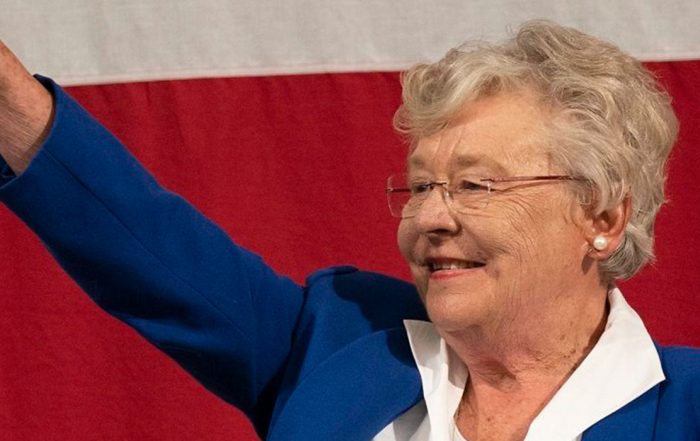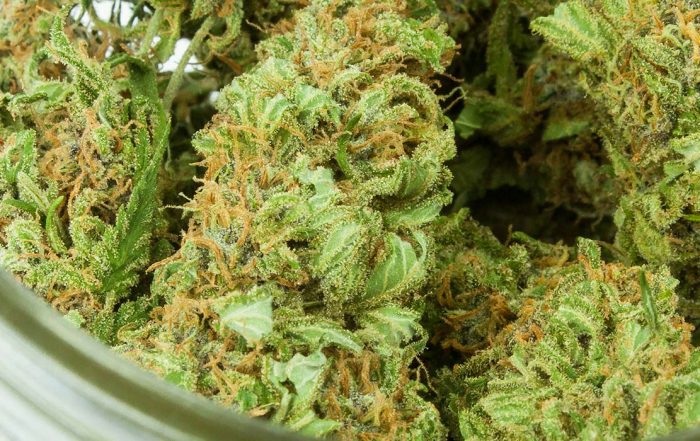Alabama Marijuana Laws
Curious about marijuana laws in Alabama? Here, recreational marijuana is illegal—possessing even a small amount of cannabis is a misdemeanor and intent to sell is a felony.
A conservative medical marijuana bill was approved by Gov. Ivey in May 2021, but the program is not yet operational. Once established, patients must verify residency and suffer from an approved condition that has not been well managed by other treatments to register with the Alabama Medical Cannabis Commission.
When dispensary sales begin, patients will be permitted to possess a 60-day supply of medical marijuana. Physicians will set daily supply limits for each patient not to exceed 75mg a day. Allowable forms do not include smokeables—only those used with inhalers or nebulizers, capsules, topicals, tinctures, transdermal patches, and suppositories.

LAW BREAKDOWN
If you live in Alabama, you probably know that your state has some of the harshest marijuana penalties in the United States. Marijuana is decidedly illegal under Alabama marijuana law. It is allowed for limited, non-intoxicating medical use, but is otherwise banned by criminal statutes. Penalties are among the harshest in the nation.
Possession
On a first offense, it is a misdemeanor to possess any amount of cannabis for “personal use” in Alabama. The maximum penalty is 1 year in jail and $6,000 in fines.
A subsequent offense for possessing marijuana for “personal use only” is a felony, subject to a minimum of 366 days and a maximum sentence of 5 years in prison, as well as a maximum fine of $7500.
Possession of marijuana for any other reason is a felony with a sentence of at least 366 days and as many as 10 years in prison, plus a $15,000 maximum fine.
| Offense | Penalty | Incarceration | Max. Fine |
|---|---|---|---|
| Personal Use | |||
| Any amount (first offense) | Misdemeanor | 1 year | $ 6,000 |
| Any amount (second offense) | Felony | 1 year and 1 day – 5 years | $ 7,500 |
| Other Than Personal Use | |||
| Any amount | Felony | 1 year and 1 day* – 10 years | $ 15,000 |
Sale
Any sale of cannabis is a felony in Alabama, punishable by a mandatory minimum sentence of 2 years in prison and a maximum of 10. A fine of up to $30,000 also applies.
Sale of marijuana by an adult over age 18 to a minor is also a felony and carries a minimum sentence of 10 years in prison and a maximum of life, plus $60,000 in potential fines. Sale within 3 miles of a school, university or public housing project is punishable by up to an additional 5 years in prison.
| Offense | Penalty | Incarceration | Max. Fine |
|---|---|---|---|
| Any amount | Felony | 2* – 20 years | $ 30,000 |
| By a person over 18 to a minor | Felony | 10 years – life | $ 60,000 |
| Within 3 mile radius of a school or a public housing project | Felony | 5 years | N/A |
| * Mandatory minimum sentence and fine |
Trafficking
Sale or cultivation of between 2.2 and 100 pounds of cannabis is considered trafficking, a felony with a minimum sentence of 3 years in prison, a maximum sentence of 10-99 years, plus $25,000 in fines. If the amount is between 100 and 500 pounds, the penalty increases to at least 5 years in prison and a maximum of $50,000 in fines. If the weight is between 500 and 1,000 pounds, the punishment is at least 15 years in prison and up to $200,000 in fines.
| Offense | Penalty | Incarceration | Max. Fine |
|---|---|---|---|
| In excess of 2.2 lbs – less than 100 lbs | Felony | 3 years* | $ 25,000 |
| 100 lbs – less than 500 lbs | Felony | 5 years* | $ 50,000 |
| 500 lbs – less than 1,000 lbs | Felony | 15 years* | $ 200,000 |
| * Mandatory minimum sentence and fine |
Cultivation and Manufacture
Cultivation of very small amounts of cannabis may be treated as possession under Alabama marijuana law, while cultivation of larger amounts is considered possession with intent to distribute. Simple cultivation is a felony, but the offense is divided into two severity levels: second and first degree.
It is a second-degree felony to grow or manufacture any amount of marijuana or marijuana product. The minimum punishment is 2 years in prison while the maximum is 20, plus $30,000 in fines. If the cultivation involves guns, booby traps, or hazardous chemicals, it is treated as a first-degree felony and carries a penalty of 10 years to life in prison, plus up to $60,000 in fines.
| Offense | Penalty | Incarceration | Max. Fine |
|---|---|---|---|
| Manufacture 2nd Degree | Felony | 2* – 20 years | $ 30,000 |
| Manufacture 1st Degree | Felony | 10 years – life | $ 60,000 |
| * Mandatory minimum sentence and fine |
Concentrates
Hashish and other marijuana concentrates are illegal in Alabama. Possession of any amount is a felony with a punishment of between one and 10 years in prison and $15,000 in potential fines.
Manufacturing concentrates is also a felony, punishable by between 2 years and life in prison, and up to $60,000 in fines.
| Offense | Penalty | Incarceration | Max. Fine |
|---|---|---|---|
| Possession | Felony | 1 year and 1 day – 10 years | $ 15,000 |
| Manufacture 2nd Degree | Felony | 2 – 20 years | $ 30,000 |
| Manufacture 1st Degree | Felony | 10 years – life | $ 60,000 |
Paraphernalia
Use, possession and sale of paraphernalia are all crimes in Alabama.
Use of cannabis paraphernalia or possession with intent to use it is a Class A misdemeanor and carries a maximum penalty of 1 year in jail and $6,000. Delivery or sale of paraphernalia is also a misdemeanor and comes with the same penalties.
It is a felony to sell paraphernalia, deliver it, possess it with intent to sell it, manufacture it with intent to deliver or sell it, or possess it with intent to use it if the paraphernalia is intended for the manufacture of a controlled substance. The minimum penalty is 1 year in prison while the maximum is 10 years and $15,000.
A subsequent conviction for delivery or sale of paraphernalia is a felony punishable by between 1 and 10 years in prison, plus $15,000 in fines. Delivery or sale of paraphernalia to a minor is also a felony and is punishable by between 2 and 20 years in prison and up to $30,000 in fines.
| Offense | Penalty | Incarceration | Max. Fine |
|---|---|---|---|
| Use or possession of paraphernalia with intent to use | Misdemeanor | 1 year | $ 6,000 |
| Delivery or sale | Misdemeanor | 1 year | $ 6,000 |
| Use, deliver, or sell, possess with intent to deliver or sell, or manufacture with intent to deliver or sell, or to possess with intent to use, drug paraphernalia to manufacture a controlled substance | Felony | 1 year and 1 day – 10 years | $ 15,000 |
| Subsequent violation of delivery or sale | Felony | 1 year and 1 day – 10 years | $ 15,000 |
| Delivery or sale to a minor | Felony | 2 – 20 years | $ 30,000 |
Miscellaneous
Medical necessity is a complete defense to possession of non-intoxicating cannabidiol (CBD) marijuana. But it is an affirmative defense, meaning defendants face evidentiary hurdles if they want to use it successfully in court.
| Offense |
|---|
| A marijuana conviction will result in a 6 month driver’s license suspension. |
| Carly’s Law is an affirmative and complete defense for the parent or caretaker of an individual who has a prescription for the possession and use of cannabidiol (CBD). |
MEDICAL MARIJUANA
A conservative medical marijuana bill was approved by Gov. Ivey in 2021 that allows the use of marijuana for a range of medical conditions, although the law is not yet operational.
Once the law is active, patients must verify residency and suffer from an approved condition that has not been well-managed by other treatments to qualify for medical marijuana and register with the Alabama Medical Cannabis Commission.
QUALIFYING CONDITIONS:
- Autism Spectrum Disorder (ASD)
- Cancer-related cachexia, nausea or vomiting, weight loss, or chronic pain
- Crohn’s Disease
- Depression
- Epilepsy or a condition causing seizures
- HIV/AIDS-related nausea or weight loss
- Panic disorder
- Parkinson’s disease
- Persistent nausea that is not significantly responsive to traditional treatment, except for nausea related to pregnancy, cannabis-induced cyclical vomiting syndrome, or cannabinoid hyperemesis syndrome
- Post Traumatic Stress Disorder (PTSD)
- Sickle Cell Anemia
- Spasticity associated with a motor neuron disease, including Amyotrophic Lateral Sclerosis
- Spasticity associated with Multiple Sclerosis or a spinal cord injury
- Terminal illness
- Tourette’s Syndrome
- A condition causing chronic or intractable pain in which conventional therapeutic intervention and opiate therapy is contraindicated or has proved ineffective
State law requires recommending physicians to cite documentation indicating that “conventional medical treatment or therapy has failed” prior to issuing a medical cannabis recommendation.
PATIENT POSSESSION LIMITS:
Patients are permitted to possess up to “70 daily dosages” of marijuana at any given time. Doses are capped at a maximum of 50 mg for the first 90 days. Patients are prohibited from accessing cannabis flower or baked edible products, and must instead consume cannabis in the form of “tablets, capsules, tinctures, or gel cubes for oral use; gels, oils or creams for topical use, or suppositories, transdermal patches, nebulizers, or liquids or oils for use in an inhaler.” Patients aged 18 and younger are limited to low-THC products.
HOME CULTIVATION:
No
STATE-LICENSED DISPENSARIES:
Yes
CAREGIVERS:
Yes
RECIPROCITY:
No
Alabama Marijuana Attorneys
The following Alabama lawyers are actively involved in the practice of cannabis law:









